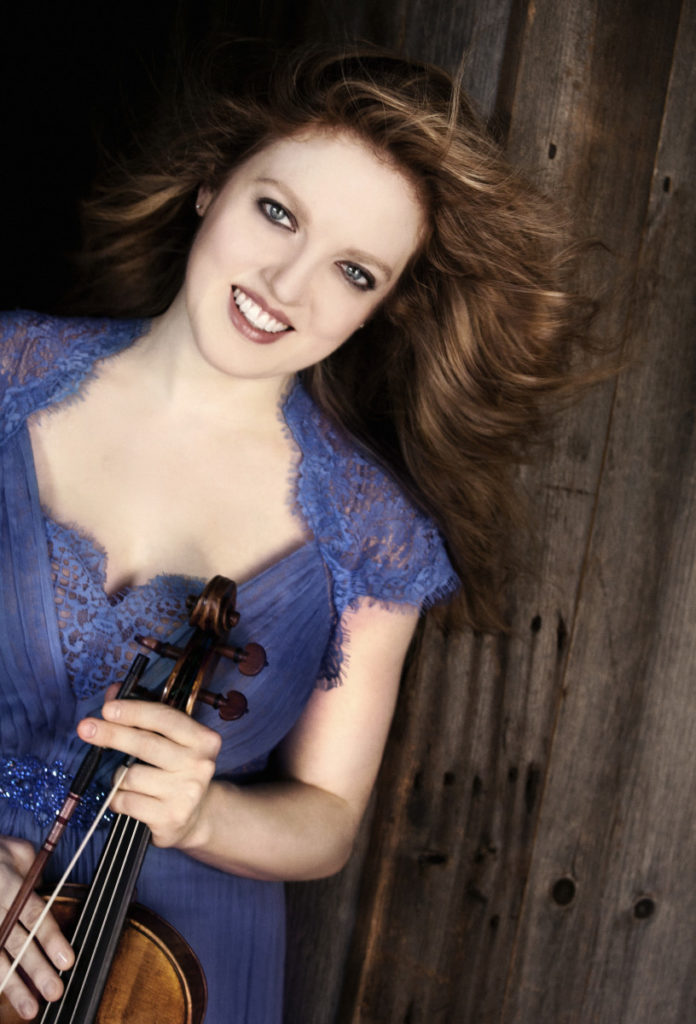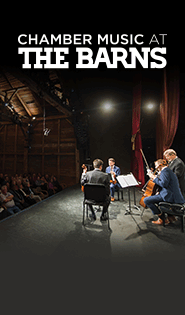Pine, Fairfax Symphony give worthy advocacy to revived Price concerto

Rachel Barton Pine performed Florence Price’s Violin Concerto No. 2 with the Fairfax Symphony Orchestra Saturday night.
Florence Price composed her Violin Concerto No. 2 in 1952. As violinist Rachel Barton Pine remarked before performing it with the Fairfax Symphony Orchestra led by Christopher Zimmerman Saturday night, its creation seems to have been driven by a pure personal need to write a concerto. Price had not received a commission, and no one performed it before she died a year later. Price never had a publisher, a circumstance likely explained by the prejudices she had to contend with as a black woman.
This concerto was lost to history until its manuscript was found in a trunk in an abandoned house in 2009, along with many other Price compositions. It was a fortuitous discovery, as Saturday’s performance at the George Mason University’s Center for the Arts showed.
Cast in one movement, the concerto features two recurring themes: a stern fanfare, broken up by delicate celeste, and a soulful melody tinged with gospel harmonies. The music in between doesn’t develop the themes so much as ruminate on them; thoughts wander in intriguing ways before returning to the main themes, which themselves undergo subtle transformations. Price demands a lot of the violinist, but the virtuoso techniques serve the contemplative mood. It’s a work that makes you want to hear it again, to see what glimmering texture or striking phrase catches your ear next, and to find out more about how they connect.
Fortunately for the curious, Pine has recorded the concerto – a recording of extra interest to local concertgoers, as Baltimore Symphony Orchestra music director-designate Jonathon Heyward leads the orchestra.
Pine has worked to get the full measure of this music; on Saturday you could hear the interpretive decisions she’s made, the through-lines she brought out, the subtle arcs to phrases to give them more poise or poignancy. Zimmerman and the FSO matched her intensity and played beautifully. One small moment stands for many: a slow rising line in the solo clarinet, asking an eloquent question, answered by a descending line from Pine that positively shone in its full, sweet tone.
In a pre-concert Q&A, Pine and Zimmerman revealed that they programmed Pablo Sarasate’s Carmen Fantasy as a contrast to the Price, and it certainly provided that: an extroverted violin showcase, riffing on beloved themes. Here Pine used the rich, dark colors of the Guarnieri violin she plays to make her melodic line sound like a husky mezzo-soprano, soaring with operatic desire, while navigating all Sarasate’s fiendish technical demands with aplomb. A couple times she accelerated into her figuration so hard that she and the orchestra got out of sync, the only blemishes on a dazzling performance. Pine offered a poised encore, of Maud Powell’s transcription of Antonín Dvorák’s Humoresque.
Following the break, the FSO essayed the Czech composer’s Symphony No. 7. Zimmerman told the audience that he hoped to use the performance to convince them that this was the best of Dvorák’s symphonies.
The orchestra certainly played like they were convinced under their music director; there were some momentary slips in ensemble, but they did not distract unduly from a committed reading. Zimmerman got the first movement cooking to its big climax, supported by blistering playing from the FSO’s brass, and the Scherzo’s folk rhythm had an infectious lilt. The finale gathered in dark intensity as it went on, and Zimmerman and the FSO made the sudden emergence of D major in its final measures as cathartic as it can be.
The Fairfax Symphony Orchestra presents the U.S. premiere of a concerto by Sylvie Bodorová March 11, with guitarist Jason Vieaux and double bassist Aaron Clay. fairfaxsymphony.org



Posted Feb 23, 2023 at 2:08 pm by Jaime Herrera
I enjoyed this review. The reference about wanting to hear the Price concerto again struck a chord. As Oscar said: “If a book isn’t worth reading twice, it isn’t worth reading once.” That applies to music as well. I did not know that Price never had a publisher, a rather sad commentary on the music scene of the early and mid 20th century. It happened to other worthy composers as well.